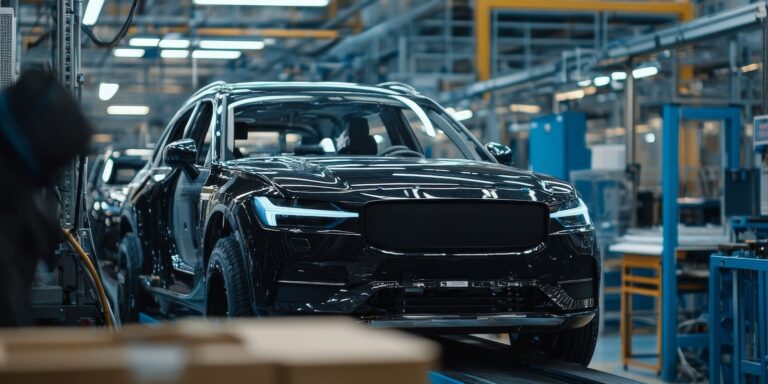K car production dropped significantly in October, marking the eighth consecutive month of reduced output. According to the latest data released by the Society of Motor Manufacturers and Traders (SMMT), factory production fell by 15.3%, with only 77,484 vehicles leaving assembly lines – 14,037 fewer than the same period last year. This decline is largely attributed to ongoing factory adjustments aimed at preparing for the next generation of zero-emission vehicles.
Decline in Electrified Vehicle Production
Nearly a third (31.9%) of cars manufactured in October were electrified models, including battery electric, plug-in hybrid, and hybrid vehicles. However, production in this category also experienced a significant drop of 32.6%. Year-to-date figures show that 239,773 electrified vehicles have been produced in the UK, with 71.8% exported to global markets.
Domestic and Export Markets Face Challenges
Production for both domestic and export markets declined in October. Output for the UK fell by 4.7%, while exports saw a sharper decline of 17.6%. Exports accounted for 80% of production, with over half (32,170 units) destined for the European Union, despite a 34.6% reduction in volume. Meanwhile, exports to the United States surged by an impressive 96.2%, reaching 14,584 units, largely due to strong demand for British luxury and premium vehicles.
Year-to-Date Production Figures
From January to October, UK car manufacturing has decreased by 10.8%, totalling 670,346 vehicles. While production for the domestic market grew by 5.3% to 159,125 units, exports fell by 14.8%, resulting in 89,095 fewer vehicles shipped overseas compared to the same period in 2023.
Investment in Electrification and Revised Production Forecasts
The UK automotive industry invested over £20 billion in 2023 to transition to electric vehicle production. However, weak demand in key markets has led to revised production forecasts. Current predictions suggest UK factories will produce around 911,000 vehicles in 2024 and 839,000 in 2025, a significant drop from the 1.4 million vehicles produced in 2019 before the pandemic.
Future Projections and Potential Risks
Reaching annual production levels above one million vehicles by 2028 depends on timely zero-emission model launches and improved consumer demand. Without these factors, output could remain below one million until 2030. In a worst-case scenario, production could fall below 750,000 units, potentially leading to factory closures and job losses, severely impacting the UK economy.
Addressing Industry Challenges
Recent announcements from manufacturers and suppliers in the UK and Europe reflect challenging market conditions and a slower transition to electrification. To maintain its competitiveness, the UK must adopt a cohesive industrial and trade strategy. This includes tackling high energy costs, providing consumer incentives, and securing trade agreements that support free and fair trade.
Mike Hawes, Chief Executive of the SMMT, shared his concerns:
“These are deeply challenging times for the automotive sector. While we’ve seen enormous investment in zero-emission technologies and facilities, production is under significant strain. The global market slowdown – particularly in EV sales – is taking its toll, and the UK is facing added pressure due to its ambitious targets and accelerated timelines, yet lacking sufficient consumer incentives. Stimulating demand and meeting regulatory requirements is proving increasingly costly and unsustainable. Swift action is vital, and we’re committed to working with the government to develop a robust industrial strategy that safeguards our industry’s future competitiveness.”

